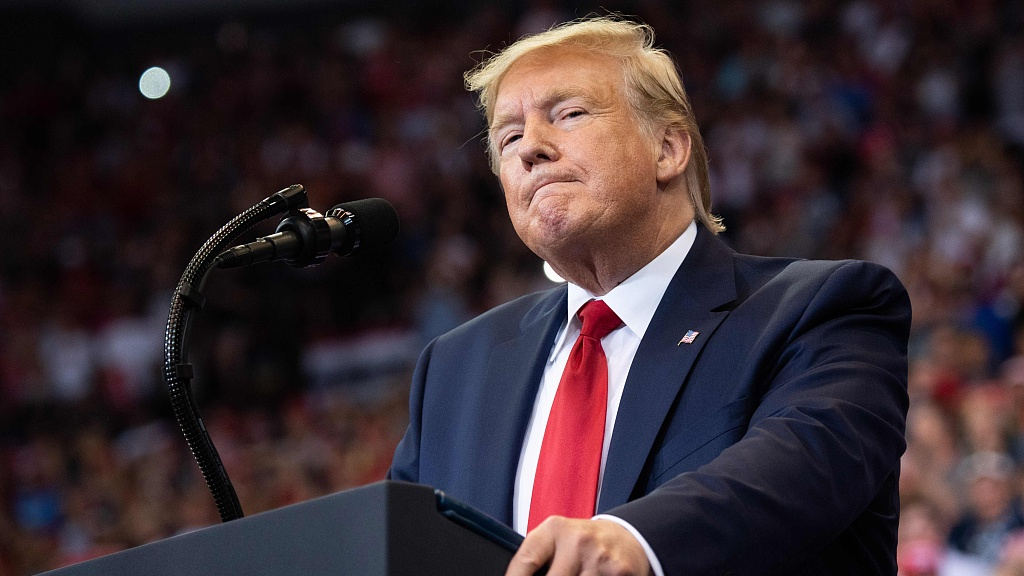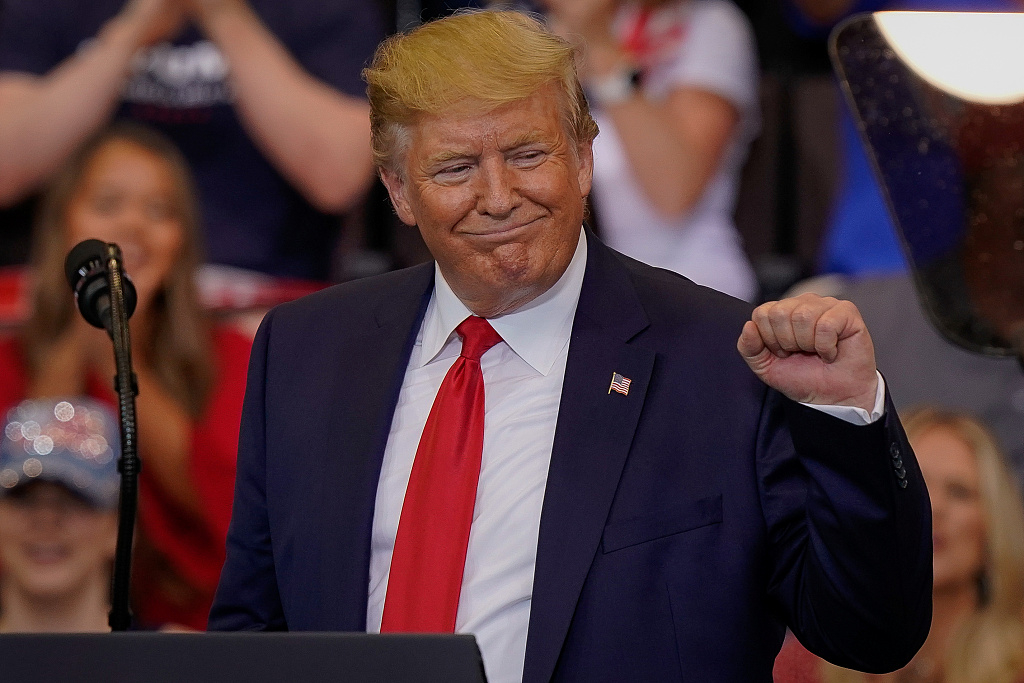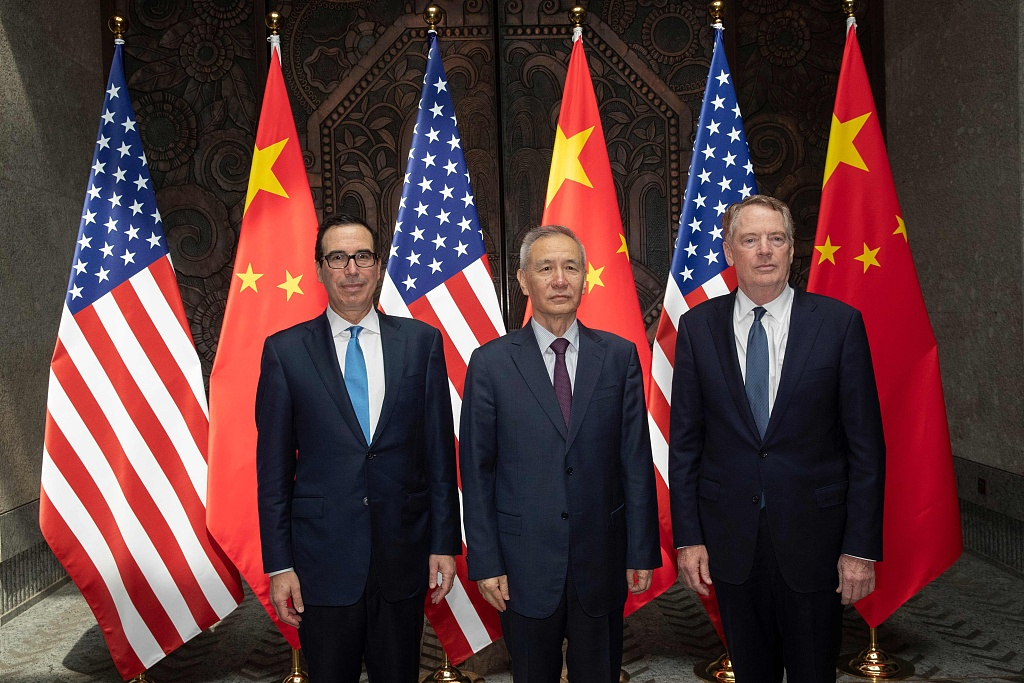

Editor's note: John Gong is a research fellow at Charhar Institute and professor at the University of International Business and Economics. The article reflects the author's opinion, and not necessarily the views of CGTN.
Other than serving as a futile pressuring tactic in the China-U.S. trade negotiations, the Trump administration's decision to label China a currency manipulator fulfills the U.S. president's longtime wish from as early as the 2016 presidential election. But the way to do this reflects every bit of recklessness of this administration.
The issue of currency manipulation by a foreign country was regulated based on the Trade Facilitation and Trade Enforcement Act of 2015, following two previous legislations in the U.S. The 2015 statute essentially requires the Treasury Department to conduct a three-factor analysis, including whether a foreign country maintains a significant bilateral trade surplus with the United States, whether it has a material current account surplus, and whether it is engaged in "persistent one-sided intervention" in the foreign exchange market.

U.S. President Donald Trump speaks at a campaign rally in Cincinnati, Ohio, U.S., August 1, 2019. /VCG Photo
The Treasury Department’s previous practice is to set 20 billion U.S. dollars of surplus over a period of a year as a threshold point for the first criterion and 3 percent of GDP for the current account balance for the second criterion. The Department interprets "persistence" in the third criterion as net purchases of dollar repeatedly, totaling in excess of 2 percent of GDP over a period of a year.
For many years up to now, China only met the first criterion, so the Treasury Department was never able to label it a currency manipulator. Take the second criterion as an example. China's current account balance as a percentage of the GDP dropped steadily from about 5 percent in 2009 to 0.4 percent in 2018. It was way below the Treasury Department's 3-percent threshold point in all of the last eight years.
Nevertheless labeling China a currency manipulator has been Trump's obsession for a long time. It showed up prominently as one of his 2016 presidential campaign promises as evident in a leaflet called "Donald Trump's Contract with the American Voter." Item three of the "seven actions to protect American workers" in that document reads, "I will direct the Secretary of the Treasury to label China a currency manipulator."
Trump has frequently repeated this campaign promise and reiterated that pledge once inaugurated. But it is apparent that this is a reckless campaign promise in total disregard of facts and in wanton contempt of the due process as required by the law.
Treasury Secretary Steven Mnuchin dissuaded him of doing so immediately after Trump's inauguration. But now in the aftermath of a near-fallout of the 12th round of China-U.S. trade negotiation, he could not hold the line any longer. What is ironic is that less than a year ago the Treasury’s biannual review still didn't put China on the currency manipulator list, but is now facing a minor 3-percent drop in yuan's value over a period of only a few days, Mnuchin has shortened the "persistent intervention" criterion from one year to just a few days without even presenting any evidence that this minor drop is indeed caused by the People's Bank of China’s possible "one-sided" purchase of dollar.

Chinese Vice Premier Liu He (C) with United States Trade Representative Robert Lighthizer (R) and Treasury Secretary Steven Mnuchin (L) pose for photos before holding talks at Xijiao Conference Center in Shanghai, China, July 31, 2019. /VCG Photo
No analysis. No evidence. No due process. No nothing. Just a brief statement from the Treasury.
Such is one more example of Trump Administration’s "persistent one-sided intervention" in international relations, divulging all the hypocrisy and the naked hegemony of Washington's foreign trade policy.
Trump’s current priority is to win the 2020 presidential election. All those trade issues with China, India, Japan and Europe are mere side theaters that ultimately should serve his campaign purpose. I suspect very soon he will issue a checklist of things to demonstrate how good he has been delivering his campaign promises to the American public.
Unfortunately this is the sinister side of the U.S. domestic politics. From now on, we are going to see more of those politicians coming up with such reckless campaign promises. They will do whatever they can and promise whatever that can lead them to the White House. And after they are there, they will have to do something to deliver that promise no matter what, just like what Trump has done.
(If you want to contribute and have specific expertise, please contact us at opinions@cgtn.com.)

Copyright © 2018 CGTN. Beijing ICP prepared NO.16065310-3
Copyright © 2018 CGTN. Beijing ICP prepared NO.16065310-3